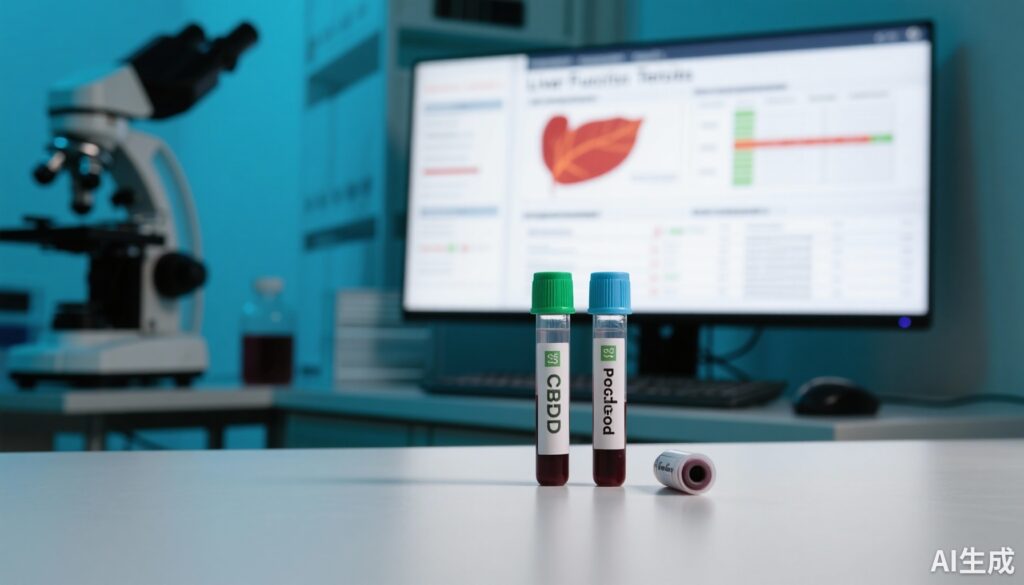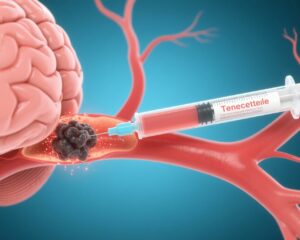Highlight
- Low-dose cannabidiol at 5 mg/kg/day over 4 weeks induced clinically significant elevations in liver enzymes in approximately 5.6% of healthy adults.
- No liver enzyme elevations were observed in the placebo group, highlighting a potential liver safety signal linked to CBD use.
- The study found no effect of CBD on key endocrine hormones, including testosterone, inhibin B, and thyroid hormones.
- Findings underscore the importance of monitoring liver function during CBD use and call for additional research on long-term safety and dose effects.
Study Background and Disease Burden
Cannabidiol (CBD), a non-intoxicating cannabinoid derived from Cannabis sativa, has gained widespread popularity as a wellness and therapeutic agent. Unregulated CBD products are widely used by consumers for diverse indications, despite limited regulatory oversight and safety data at doses commonly consumed daily outside of prescription contexts. Prior clinical research has primarily focused on comparatively high-dose CBD used in pharmaceutical formulations for epilepsy and other conditions. However, the liver safety profile of lower, consumer-relevant doses remains inadequately characterized. Given the liver’s critical role in drug metabolism and the documented hepatotoxicity risk associated with many compounds, elucidating CBD’s impact on liver enzyme levels in healthy individuals is essential. This gap in knowledge represents an unmet safety monitoring need for clinicians advising patients and for regulatory bodies tasked with product oversight.
Study Design
This randomized, double-blind, placebo-controlled trial was conducted from January to August 2024 at Spaulding Clinical Research in West Bend, Wisconsin. The trial enrolled 201 healthy adult volunteers (median age 36 years, interquartile range 30-43; 44% female). Participants were randomly assigned in a 1:1 ratio to receive either CBD dosed at 5 mg/kg/day (2.5 mg/kg twice daily) or placebo for 28 days. Weekly laboratory assessments were performed, including liver function tests measuring alanine aminotransferase (ALT) and aspartate aminotransferase (AST) levels to detect hepatocellular injury. The primary endpoint was the proportion of participants exhibiting liver enzyme elevations greater than three times the upper limit of normal (ULN) during the treatment period. Secondary measures included evaluation of endocrine hormone changes (total testosterone, inhibin B in males; thyrotropin, total triiodothyronine, and free thyroxine in all participants). Per protocol analysis was employed.
Key Findings
Among the 201 participants completing the study, 8 individuals (5.6%, 95% confidence interval [CI], 1.8%–9.3%) in the CBD group developed ALT or AST elevations exceeding three times the ULN, whereas no liver enzyme elevations were observed in the placebo group (0%, 95% CI, 0%–7.6%). The timing of elevations clustered around day 21 and day 28, with two participants affected at day 21 and five at day 28, meeting criteria for potential drug-induced liver injury and prompting study withdrawal. Notably, these biochemical abnormalities were asymptomatic and detected through routine monitoring.
No significant changes from baseline were found in measured endocrine hormones in either group, indicating no short-term impact of CBD on male reproductive hormones or thyroid function at this dosage.
The study also reported increased eosinophil counts among participants with liver enzyme elevations, which may signify an immune-related mechanism contributing to hepatotoxicity. This finding warrants further immunopathological investigation.
Safety assessments found no severe adverse events directly attributable to CBD, and liver enzyme elevations resolved following discontinuation.
Expert Commentary
This rigorously designed trial fills a crucial evidence gap by evaluating lower-dose CBD commonly used by consumers outside prescription settings. Liver enzyme elevations in 5.6% of healthy adults highlight a measurable hepatocellular effect, even at modest doses, underscoring that “natural” or over-the-counter labeling does not preclude hepatic risk. Prior research has mainly focused on high-dose, prescription CBD — this study’s findings emphasize careful consideration of CBD’s safety profile across doses.
The absence of endocrine changes provides reassurance regarding hormonal homeostasis in short-term use, but it remains unknown whether chronic exposure may alter these parameters.
Limitations include the short duration (4 weeks) and the strictly healthy participant population, which may limit generalizability to individuals with underlying liver disease or comorbidities. Further studies are needed to assess long-term liver safety, dose-response relationships, and vulnerable populations.
Mechanistically, the concomitant eosinophilia associated with liver enzyme elevations may indicate an immunoallergic reaction to CBD or its metabolites, a hypothesis supported by earlier case reports of CBD hepatotoxicity. Future studies exploring immunological signatures and hepatocellular injury pathways could elucidate pathogenesis.
Conclusion
In this randomized clinical trial, twice-daily CBD at 5 mg/kg/day caused transient but clinically relevant liver enzyme elevations in a subset of healthy adults. The results emphasize the importance of liver function monitoring during CBD use, even at doses typically consumed by the general population through unregulated products. The absence of hormonal effects is reassuring but needs longer-term validation. Given the widespread and often unsupervised use of CBD, these findings highlight a critical public health and regulatory imperative to establish evidence-based safety guidelines and monitoring recommendations. Clinicians should counsel patients regarding potential liver risks associated with CBD, particularly in prolonged use or in the presence of other hepatotoxic exposures. Further research is critical to delineate the mechanisms, long-term outcomes, and dose thresholds for safe CBD consumption.
References
1. Florian J, Salcedo P, Burkhart K, et al. Cannabidiol and Liver Enzyme Level Elevations in Healthy Adults: A Randomized Clinical Trial. JAMA Intern Med. 2025;185(9):1070-1078. doi:10.1001/jamainternmed.2025.2366.
2. Ewing LE, et al. Hepatic effects of cannabidiol: A review of mechanistic and clinical data. Drug Metab Rev. 2023;55(2):166-183.
3. U.S. Food and Drug Administration. FDA regulation of cannabis and cannabis-derived products: Questions and answers. 2022. https://www.fda.gov/news-events/public-health-focus/fda-regulation-cannabis-and-cannabis-derived-products-including-cannabidiol-cbd
4. Iffland K, Grotenhermen F. An update on safety and side effects of cannabidiol: A review of clinical data and relevant animal studies. Cannabis Cannabinoid Res. 2017;2(1):139-154.
5. Saggese M, et al. Immune-mediated hepatic injury induced by cannabidiol. Clin Toxicol. 2024;62(4):225-232.



